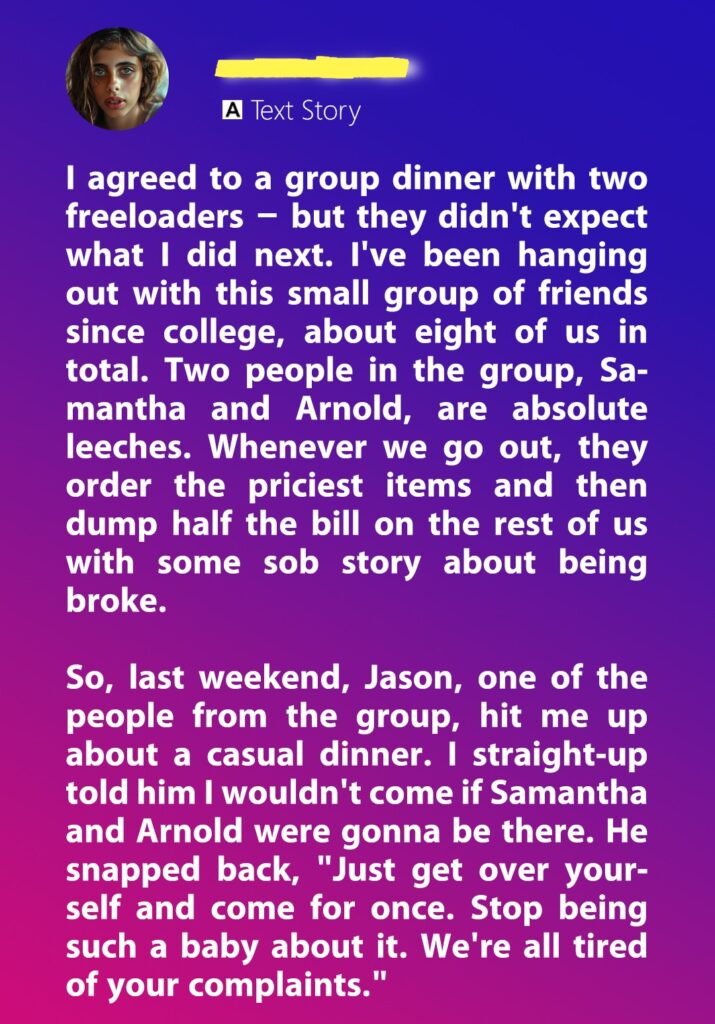Cecelia had always been the dependable one in her friend group—generous, loyal, and quietly supportive. Whether it was lending money to Betty for car repairs or showing up with coffee and donuts when Harry’s moving crew bailed, she never hesitated to help. But her patience had worn thin with two particular friends: Samantha and Arnold.
They were the kind who treated group dinners like open buffets—ordering cocktails, appetizers, and the most expensive entrées, then expecting everyone to split the bill evenly. Cecelia, who usually ordered modestly, had watched this pattern play out too many times. She’d stopped attending group dinners altogether, unwilling to subsidize their indulgence.
But when the group planned another dinner and assured her the freeloaders wouldn’t be there, Cecelia agreed to come. Yet as she arrived, there they were—smiling, oblivious, and already scanning the menu for their usual feast.
Cecelia didn’t confront them. She didn’t cause a scene. Instead, she quietly asked the server to separate her bill. When the check arrived, she paid only for her meal—with a generous tip—and wished everyone a good night.
The freeloaders were stunned. “I thought we were splitting like always,” one said.
“Oh,” Cecelia replied calmly, “well, your bad.”
Her quiet rebellion sparked a ripple. Two others asked for separate checks too. The freeloaders were left holding a bill they could no longer hide behind.
The next day, Cecelia received a message accusing her of “disrupting the group vibe.” Apparently, splitting the bill was a tradition that allowed everyone to enjoy meals they “couldn’t otherwise afford.” But Cecelia saw through the excuse. They weren’t struggling—they were exploiting.

Her response was simple: “I won’t be guilted into paying for moochers.”
In that moment, Cecelia didn’t just reclaim her dignity—she reminded the group that fairness isn’t optional, and silence isn’t consent. Sometimes, the most powerful statement is made without raising your voice.


